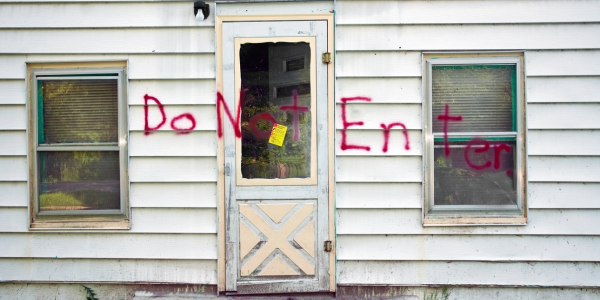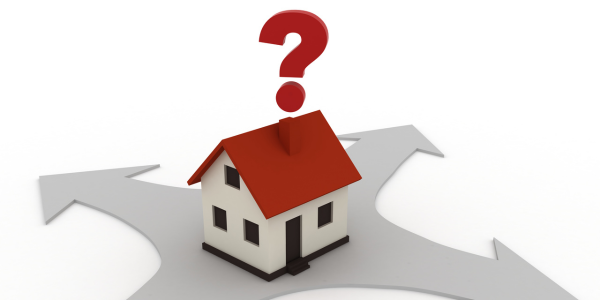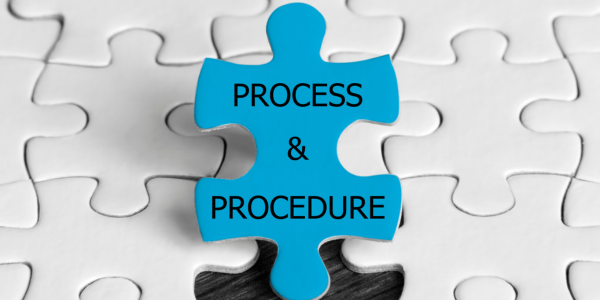
Key Takeaways
- Selling a house deemed unfit for habitation involves comprehending the legal implications in Virginia.
- It is possible to sell a property that has been condemned, but specific steps must be followed.
- The procedure for selling a condemned residence requires careful navigation of regulations and documentation.
- There are numerous obstacles when attempting to market a condemned property in Virginia.
- Homeowners with condemned buildings have various alternatives to consider for their situations.
Table of Contents
- Introduction
- What is a Condemned House?
- Who Condemns Properties in Virginia?
- Can You Sell a Condemned House?
- What to Do If Your House is Condemned and You Have a Mortgage
- What Makes a House Condemned?
- Steps to Take Before Listing a Condemned House
- Conclusion
- Frequently Asked Questions

Introduction
Selling a condemned house might sound impossible, but many homeowners find themselves asking this very question—can you actually sell a condemned property in Virginia? A condemned house is typically considered uninhabitable due to safety concerns, but that doesn’t mean it’s entirely unsellable. Properties can be condemned for various reasons, from structural damage to severe health hazards, and while the process of selling one may seem daunting, it’s far from hopeless.
In this guide, we’ll walk you through what it means when your property is condemned, who holds the power to condemn a house in Virginia, and most importantly, how you can still sell a condemned house. Whether you’re trying to navigate the legalities or simply curious about your options, we’ve got all the answers you need.
Whether you’re dealing with a condemned home in Arlington, facing structural issues in Williamsburg, or trying to sell an uninhabitable property in Richmond, understanding your options can help you take control of the situation.
What is a Condemned House?
A condemned house is one that has been deemed unfit for occupancy by a governing authority, usually due to safety concerns or significant code violations. The property may be dangerous to live in, which prompts officials to issue a condemnation order. However, a condemned house doesn’t always mean it’s beyond saving—it just means extensive work is required to bring it back up to habitable standards.
- Common Reasons for Condemnation
- Properties can be condemned for several reasons. The most common include:
- Structural Damage: Significant foundation issues, roof collapse, or extreme deterioration can render a house unsafe.
- Health Hazards: Mold, asbestos, lead, or other toxic materials pose health risks.
- Code Violations: Homes that violate local building codes or safety standards can also be condemned.
- Each of these issues contributes to making the property uninhabitable. However, depending on the nature of the damage, the home may still have value, especially to investors or buyers looking to renovate.
- Properties can be condemned for several reasons. The most common include:
- What Happens When Your House is Condemned?
- Once a house is condemned, local authorities will notify the homeowner and sometimes post a notice on the property. The occupants must vacate the premises, and the owner is given a specific period to either make repairs or demolish the structure. Failing to address the condemnation can lead to fines or legal action.
Who Condemns Properties in Virginia?
In Virginia, various authorities can condemn a property based on its condition. Knowing who has the power to condemn houses will help you understand the processes that lead to a house being deemed uninhabitable.
- Role of Local Government and Building Inspectors
- The local government plays a significant role in condemning properties. Building inspectors are often responsible for determining whether a house meets local safety and code standards. These professionals assess the structural integrity, plumbing, electrical wiring, and other crucial aspects of a home. If the property poses safety risks, it may be condemned.
- Building inspectors typically conduct routine evaluations, but if complaints arise from neighbors or tenants about dangerous conditions, a special inspection may occur, leading to potential condemnation.
- Can the Health Department Condemn a House?
- Yes, the health department has the authority to condemn a house, especially if there are unsanitary conditions. Health concerns such as mold infestation, improper sewage systems, or pest infestations can prompt health officials to declare the property uninhabitable. In these cases, homeowners are often required to rectify the health hazard before the property can be sold or reoccupied.
Can You Sell a Condemned House?

The answer is yes—you can sell a condemned house in Virginia. However, the process is different from selling a traditional property, and the pool of potential buyers is more limited. Most buyers will avoid condemned properties, but certain types of investors and cash buyers are eager to purchase homes, even those in poor condition.
- Selling to Cash Buyers or Investors
- Cash buyers and real estate investors often seek out distressed or condemned properties because they can acquire them for a lower price and either flip them or renovate them for profit. These buyers are familiar with the risks and the work required to bring a condemned property up to code, making them a viable option if you need to sell quickly.
- Selling to cash buyers also eliminates the need for appraisals and mortgage approvals, which can be challenging for condemned properties. These buyers typically offer a fast, straightforward sale without the need for costly repairs upfront.
- Selling ‘As-Is’ and What It Means
- When selling a condemned house, the “as-is” option becomes highly relevant. Selling a home “as-is” means the property is sold in its current condition, without any required repairs or improvements. Buyers purchasing as-is homes understand they are responsible for all necessary renovations and repairs. This route is commonly taken by sellers who either cannot afford or do not want to invest in making the home habitable again.
What to Do If Your House is Condemned and You Have a Mortgage
For many homeowners, the problem is not just owning a condemned property—it’s owning one with a mortgage. Having a mortgage on a condemned house adds another layer of complexity to the sale process, as lenders may have certain requirements for a sale to proceed.
- How Condemnation Affects Your Mortgage
- Condemnation can have serious implications for a mortgage. If a property is declared uninhabitable, the homeowner might face foreclosure if they are unable to meet the terms of their loan. Since the value of the property declines with condemnation, it could be difficult to refinance or get approval for repairs without the lender’s involvement.
- In some cases, the lender may require the homeowner to repay the loan in full if the house cannot be salvaged. This can be a difficult situation for homeowners, but it’s important to understand that you still have options.
- Options for Homeowners: Short Sales and Loan Modifications
- One potential solution is a short sale, where the homeowner sells the house for less than the remaining mortgage balance, and the lender agrees to accept the lower amount to avoid foreclosure. Another option is loan modification, which may allow homeowners to restructure their mortgage to avoid losing the property altogether.
What Makes a House Condemned?
Understanding what causes a house to be condemned can help both current and potential homeowners avoid this fate. Condemnation typically results from a combination of code violations, structural issues, and health risks that make the property unsafe for occupancy.
- Common Violations Leading to Condemnation
- Common causes of condemnation include:
- Code Violations: Homes that do not comply with local building codes may be condemned, especially if they pose significant safety risks.
- Structural Disrepair: Issues like foundation cracks, sagging roofs, or water damage can make a home unstable.
- Plumbing or Electrical Hazards: Faulty wiring, leaking pipes, or improper drainage systems can lead to dangerous living conditions.
- Common causes of condemnation include:
- Preventing Condemnation: What Homeowners Can Do
- To avoid condemnation, homeowners should conduct regular maintenance on their properties. This includes fixing small issues before they become larger, more expensive problems, staying compliant with local codes, and addressing any health hazards promptly. Keeping up with inspections and repairs can prevent a property from becoming condemned.
Steps to Take Before Listing a Condemned House

Understanding the steps to take before listing a condemned house is crucial for homeowners wondering, “Can You Sell a Condemned House Virginia.” First, it’s important to check the condemned status of your property through local Virginia authorities. They can provide documentation detailing the reasons for the condemnation, which is essential for transparency during the entire home selling process. Knowing the specific issues identified by the authorities will help you address potential concerns from buyers and may guide you in deciding whether to sell the property as-is or opt for repairs.
Another vital step involves exploring your options for selling, such as property auction or working with investors who specialize in condemned counterparts. Many buyers looking at condemned properties are prepared to renovate and restore them. Therefore, understanding the market and potential buyer demographics can help you strategize your listing effectively. Clarifying whether you intend to sell in its current state or after making repairs influences how you navigate the selling process, especially given the unique challenges of a property’s condemned status.
Navigating the Legal Requirements
Understanding the legal landscape surrounding selling a condemned house in Virginia is essential. Previous condemnation proceedings can heavily influence the sale process. Outcomes of such proceedings may include specific requirements for repairs or disclosures regarding house safety. Regular condemnation can result in a condemnation title, which affects the property’s marketability. Sellers must navigate these legal obligations diligently to ensure compliance with state regulations.
Potential buyers will often be wary of properties listed under condemnation proceedings. Transparency about the property’s condition and any existing liens or restrictions is crucial. It can be beneficial to consult with a real estate attorney familiar with selling in these circumstances. Property auctions may be an option if traditional selling methods prove challenging. Understanding the nuances of these legal requirements is vital for anyone asking, “Can You Sell a Condemned House Virginia?”

Repairing and Restoring the Property
Repairing a condemned house offers a possible path for homeowners facing housing code violations. Addressing these issues can significantly enhance the home’s marketability. Homeowners must first assess the extent of the damage and understand the necessary repairs to comply with local regulations. This process can involve obtaining permits and inspections, which can be time-consuming but crucial for meeting the standards required for a safe living environment. Once repairs are completed, homeowners can begin to navigate the selling process more effectively, ultimately helping them determine if they can sell a condemned house in Virginia.
Restoring the property not only improves the condition of the home but can also attract potential buyers who may otherwise overlook it due to its status. While some cash home buyers may purchase properties as-is, many buyers are looking for homes that meet certain standards and provide peace of mind. Establishing a clear understanding of the repaired estate’s value can facilitate a smoother transition during the selling process. Engaging with knowledgeable real estate professionals can further enhance the chances of successfully selling the home, leading to a more favorable outcome for the homeowner.
- Conduct a thorough inspection to identify all necessary repairs.
- Obtain required permits and schedule inspections with local authorities.
- Prioritize repairs that address safety concerns and structural integrity.
- Invest in quality materials to ensure long-lasting results.
- Consider landscaping improvements to boost curb appeal.
- Work with a real estate professional to accurately price the renovated property.
- Document all repairs and improvements for potential buyers and appraisers.
Conclusion
Selling a condemned house in Virginia may seem like a difficult process, but with the right knowledge and approach, it is entirely possible. Whether you choose to sell to a cash buyer, negotiate with your mortgage lender, or explore as-is sales, there are options for homeowners in this challenging situation. Understanding who condemns properties, why houses become condemned, and the steps you can take if you find yourself in this situation are crucial. If you own a condemned property and want to sell it, the key is to act quickly, explore all your options, and work with professionals who specialize in these types of sales. By taking the right steps, you can sell a condemned house and move forward with your financial future.
Frequently Asked Questions
 How does house condemnation impact the sale of a condemned home in Virginia?
How does house condemnation impact the sale of a condemned home in Virginia?
- When a house is condemned in Virginia, it is deemed unfit for living, often due to issues that make the real property unsafe or unsanitary. Selling a condemned property isn’t straightforward, as potential buyers may be deterred by the process, especially if the property stands in wetlands or requires significant repairs to become a livable house. Additionally, the charter for redevelopment might impose restrictions. However, in Virginia today, buyers can still purchase homes that have been condemned, provided they understand the risks involved. If the house doesn’t meet the local codes, owners might seek to challenge the condemnation or appeal to have it repealed.
 Can you sell a condemned home in Virginia, and what implications does house condemnation in Virginia have on the sale process?
Can you sell a condemned home in Virginia, and what implications does house condemnation in Virginia have on the sale process?
- Yes, you can sell a condemned home in Virginia, but it comes with challenges. When a property stands as a condemned property, it is deemed unfit for occupancy, which can deter potential buyers. However, some investors or buyers may be interested in purchasing homes, particularly if they plan to undertake renovations or demolition. Understanding the condemnation process and knowing your rights can help navigate the complexities of selling a property declared unfit. Always check local regulations and consider consulting a real estate professional to ensure compliance with condemnation laws.
 What considerations should you keep in mind when selling a condemned home in Virginia?
What considerations should you keep in mind when selling a condemned home in Virginia?
- When selling a condemned home in Virginia, it’s important to understand that the property is often deemed unfit for habitation, which can affect how potential buyers perceive the value. A condemned property stands as a significant hurdle in the sale, but there are still ways to market it effectively. Virginia purchase homes that are labeled as condemned can be appealing to investors looking to renovate or redevelop the property. Be aware that condemnation could have led to regulations being repealed. A or specific requirements tailored to historic home considerations.
 What are the potential challenges of selling a condemned home in Virginia due to house condemnation in Virginia?
What are the potential challenges of selling a condemned home in Virginia due to house condemnation in Virginia?
- Selling a condemned home in Virginia can present several challenges, particularly because such properties are often deemed unfit for habitation. House condemnation in Virginia typically indicates that the property has significant issues that render it unsafe, which complicates the sale process. It’s crucial to address the issues resulting from condemnation to make the property more marketable.
 What legal options are available for a condemned home in Virginia and how does house condemnation in Virginia affect its status as a property unfit for habitation?
What legal options are available for a condemned home in Virginia and how does house condemnation in Virginia affect its status as a property unfit for habitation?
- When dealing with a condemned home in Virginia, homeowners can explore various legal options such as appealing the condemnation, making repairs to remove the condemned status, or selling it as-is. House condemnation in Virginia designates a property unfit for habitation, which significantly impacts the sale process and potential buyers’ willingness to invest in the property.
 What are the steps to take if you want to sell a condemned home in Virginia due to house condemnation in Virginia?
What are the steps to take if you want to sell a condemned home in Virginia due to house condemnation in Virginia?
- If you want to sell a condemned home in Virginia, it’s essential to first understand the implications of condemnation. You will need to disclose the property’s status when listing it, secure any necessary documentation, and may have to consult with local authorities regarding regulations and possible restoration efforts, as house condemnation in Virginia can significantly impact marketability and value.
 What are the legal implications of selling a condemned home in Virginia and how does house condemnation in Virginia factor into the sale?
What are the legal implications of selling a condemned home in Virginia and how does house condemnation in Virginia factor into the sale?
- When selling a condemned home in Virginia, it’s crucial to understand that house condemnation in Virginia means the property has been deemed unfit for habitation. This status significantly impacts the sale, as potential buyers may be deterred due to the condemnation, and there may be legal requirements to disclose this information. Therefore, it’s important to consult with real estate professionals familiar with the consequences of condemnation when navigating the sale process.

